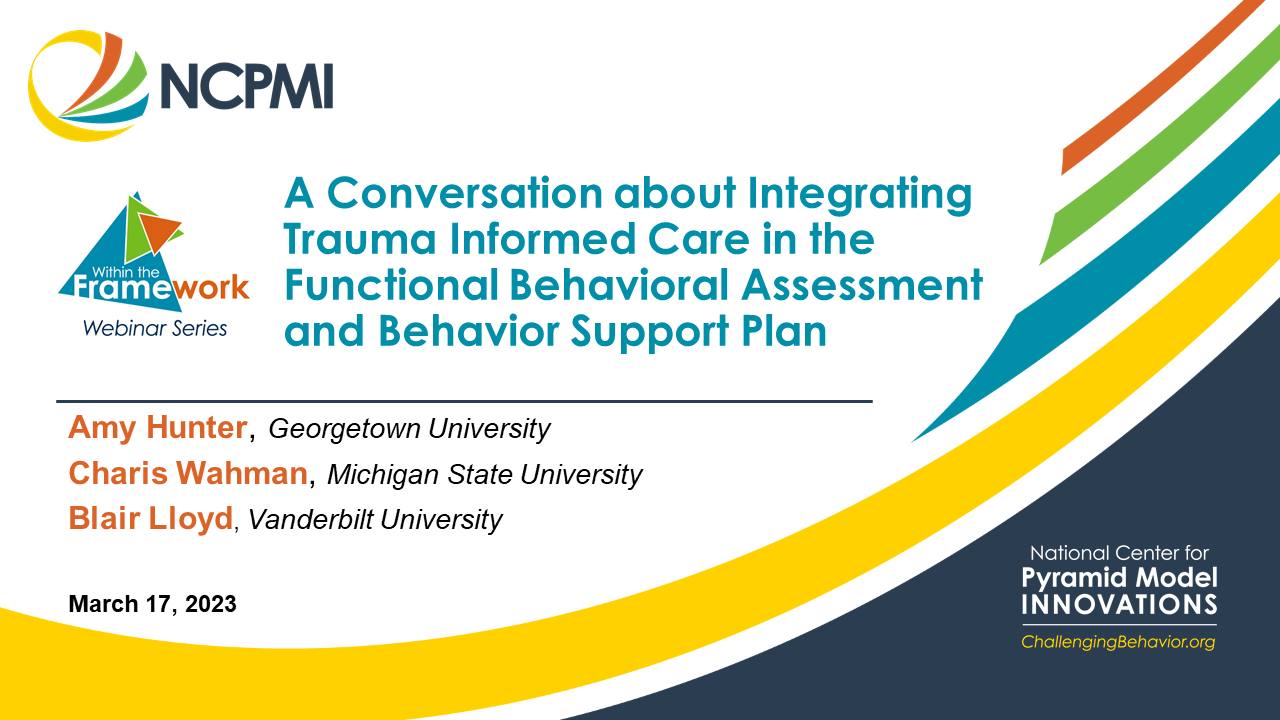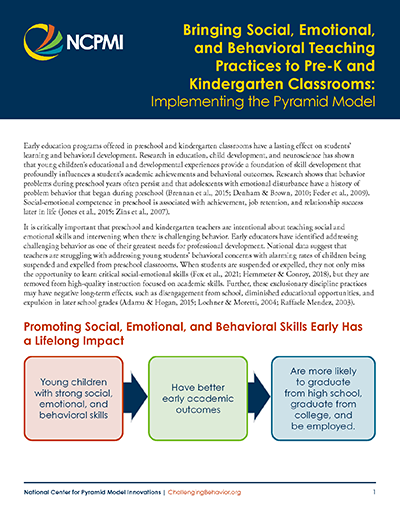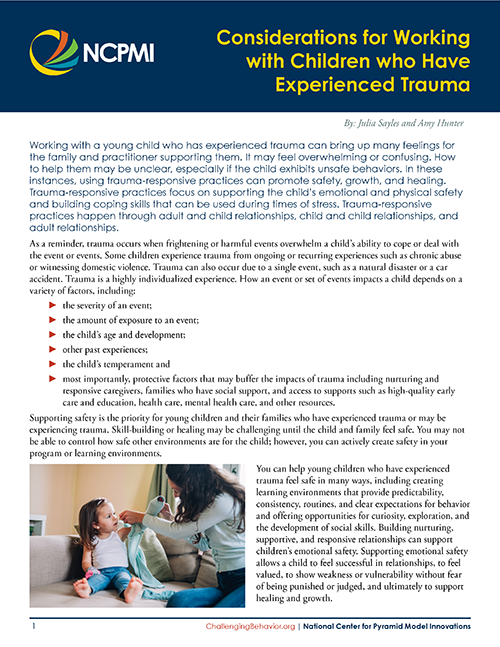
This practice brief provides prevention strategies to help children with challenging behavior who have been exposed to trauma and strategies for responding to children when they are trauma-activated.
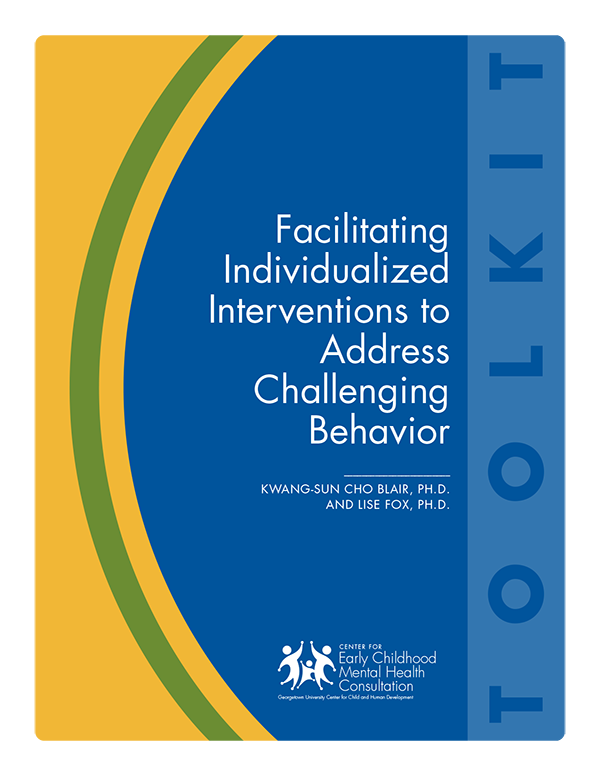
Center for Early Childhood Mental Health Consultation. This guide is designed to assist the mental health consultant in guiding teachers, teams, and families in developing and implementing an individualized plan of support that results in a reduction of challenging behavior and the promotion of communication and social skills.
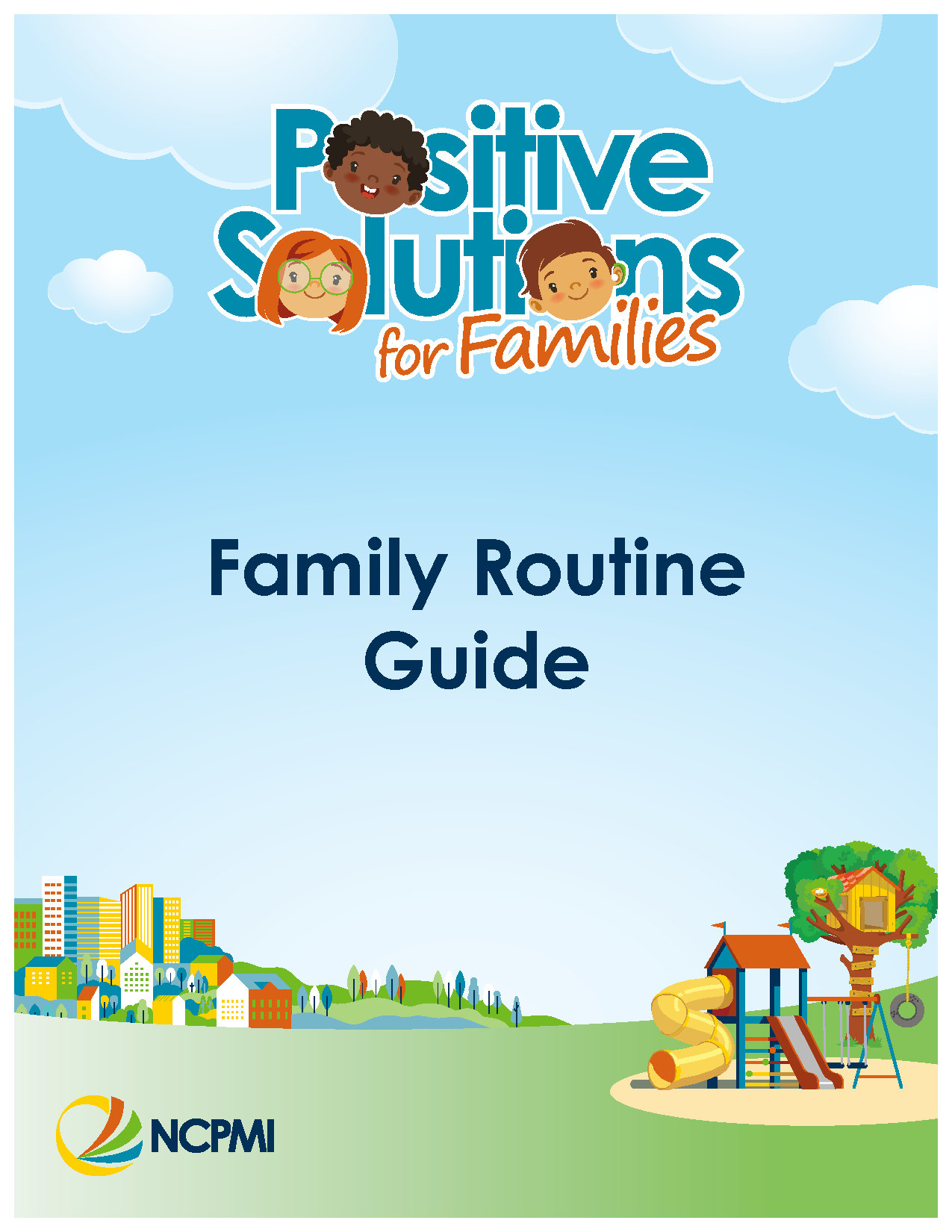
The Positive Solutions Family Routine Guide is used by parents and caregivers of children ages 2-5 years in developing an intervention plan for children who are using challenging behavior. The Guide gives suggestions for prevent, teach, and response strategies, organized by the function of the challenging behavior, within common family activities and routines. The guide is part of the Positive Solutions for Families workshop series.
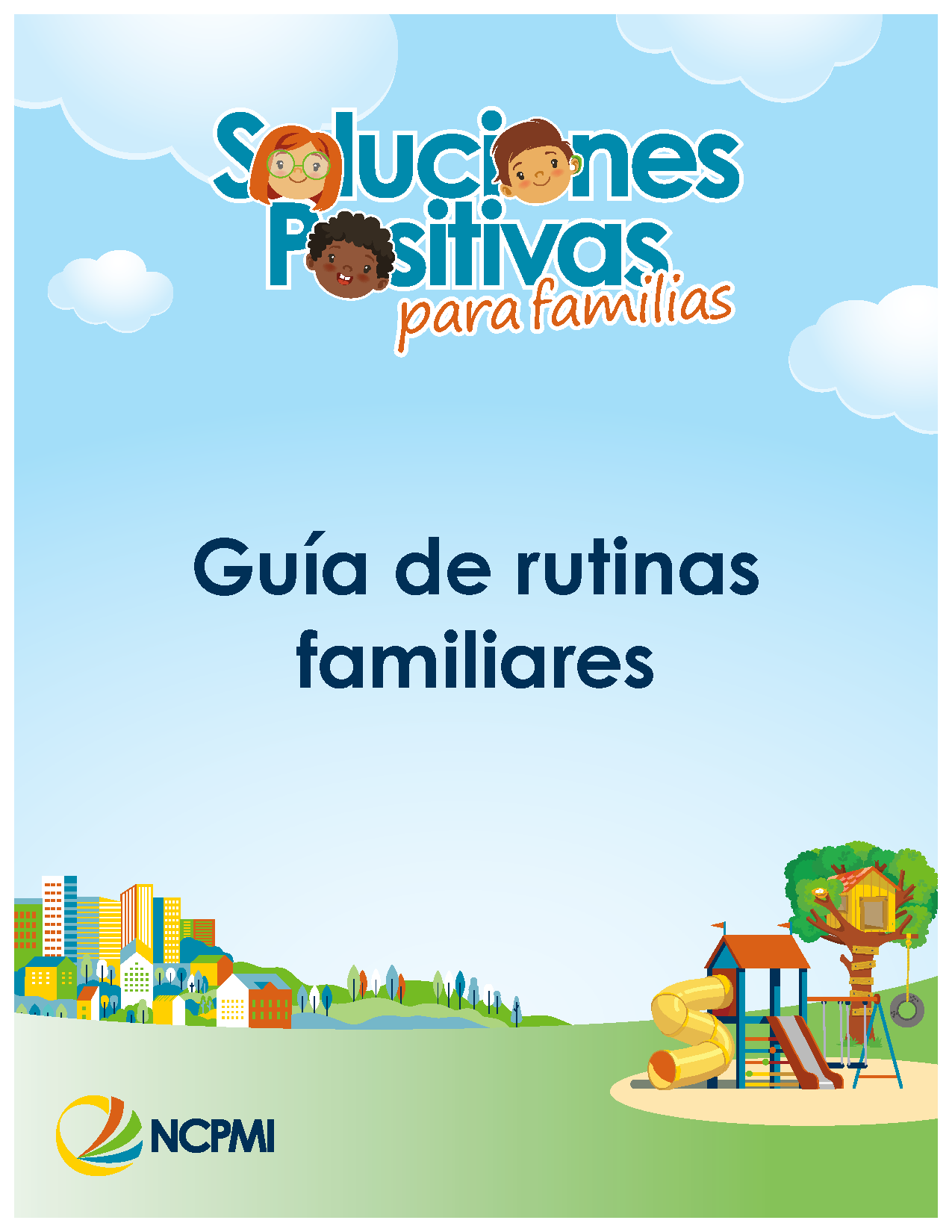
The Positive Solutions Family Routine Guide is used by parents and caregivers of children ages 2-5 years in developing an intervention plan for children who are using challenging behavior. The Guide gives suggestions for prevent, teach, and response strategies, organized by the function of the challenging behavior, within common family activities and routines. The guide is part of the Positive Solutions for Families workshop series.
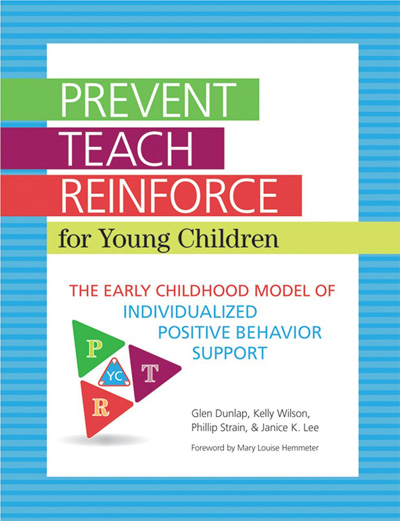
Authors: Glen Dunlap Ph.D., Kelly Wilson B.S., Phillip S. Strain Ph.D., Janice K. Lee M.Ed. Now early childhood professionals have their own guide to the popular Prevent-Teach-Reinforce (PTR) model—the research-proven, family-centered approach used in schools nationwide to resolve challenging behaviors. Developed by top behavior experts, this practical, reader-friendly guidebook shows you how to improve the social emotional development and prevent challenging behaviors of young children in preschool settings by: 1) Preventing behavior problems; 2) Teaching proactive communication and social skills; 3) Reinforcing positive behavior.
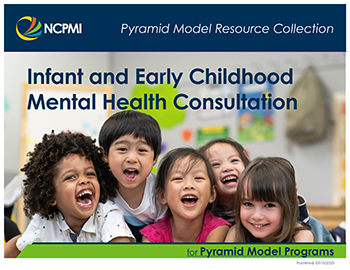
This resource collection offers information and materials for states, communities, and early childhood programs seeking further information on Infant and Early Childhood Mental Health Consultation (IECMHC) and the integration with the Pyramid Model.
Created: 7/15/2025
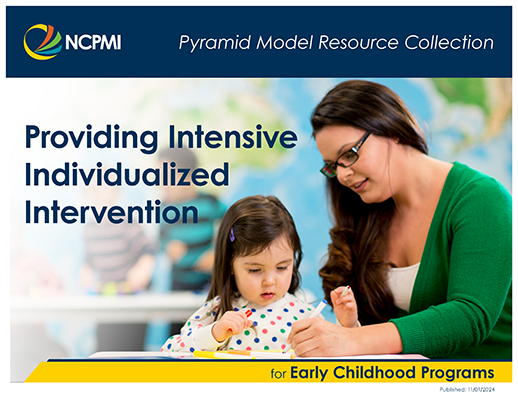
This resource provides teams and individuals with a wealth of resources and materials on Functional Behavioral Assessment (FBA) and the Individualized Positive Behavior Support (IPBS) process used for Intensive Individualized Interventions.
Created: 11/01/2024

Teaching Tools for Young Children (TTYC) offers a straightforward resource for practitioners and coaches to support children who struggle with challenging behavior in routines and activities. TTYC suggests specific step-by-step strategies for practitioners to consider when they know the function (or purpose) of a child’s challenging behavior.
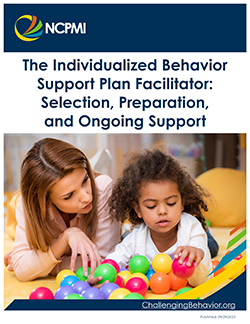
This resource outlines guidance for identifying, preparing, and supporting practitioners responsible for facilitating the development and implementation of individualized positive behavior support (IPBS) plans in early childhood Pyramid Model settings.

This guide provides Pyramid Model leadership teams and practitioners with guidance on developing and implementing Tier 2 within the Pyramid Model.


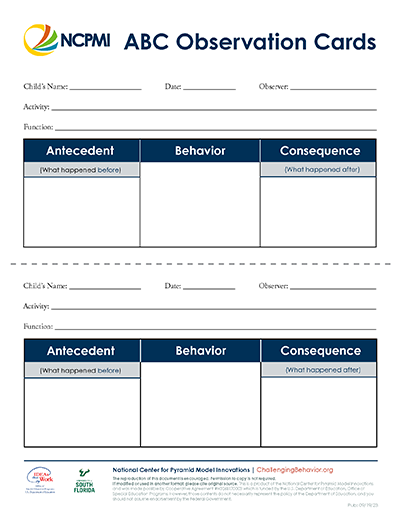
This template serves as an organizer to determine the antecedents and consequences to specific behavior.
A simple data collection form to measure child engagement and challenging behavior within a routine.
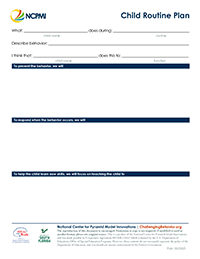
Teaching Tools for Young Children form for listing the strategies for supporting a child with challenging behavior within a classroom routine.

Tool to use to determine function of behavior within a routine.
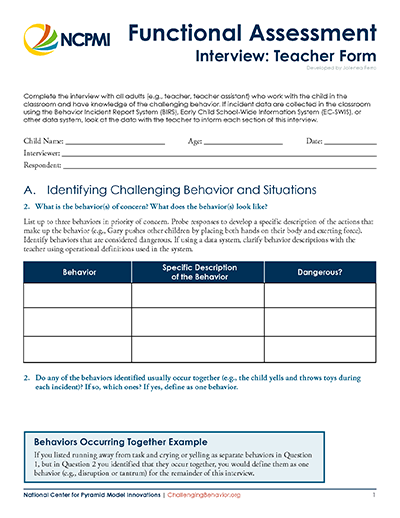
The functional assessment interview for teachers was developed to gather information about an individual child for the purpose of behavior support planning.
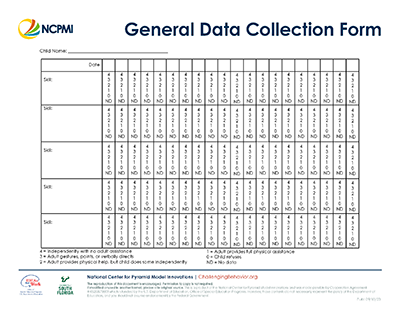
This data collection form can be used to collect data on child’s progress in targeted skill development. This form can hold up to one month of data, can track more than one goal, and is scored on the level of help most often used for the child to successfully complete the skill or behavior.

The Interview and Observation Summary Table – Blank Form is a tool for data collection from interviews and observations for organizing to develop a hypothesis about the behavior.
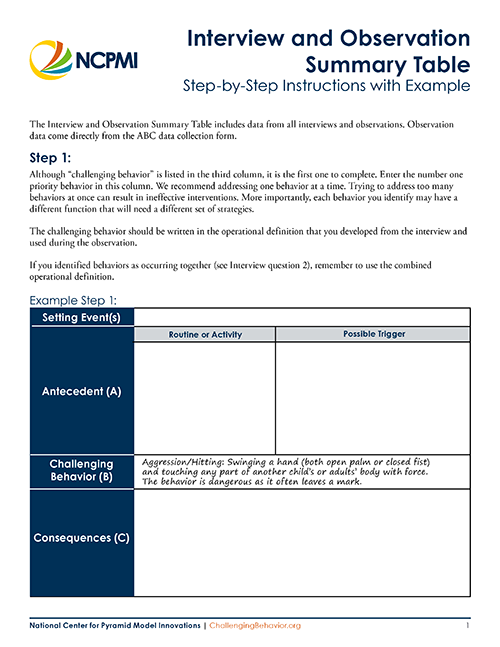
The Interview and Observation Summary Table provides an example for how all the data collected from interviews and observations can be organized to develop a hypothesis about the behavior.

Use this card to record information around challenging behavior.
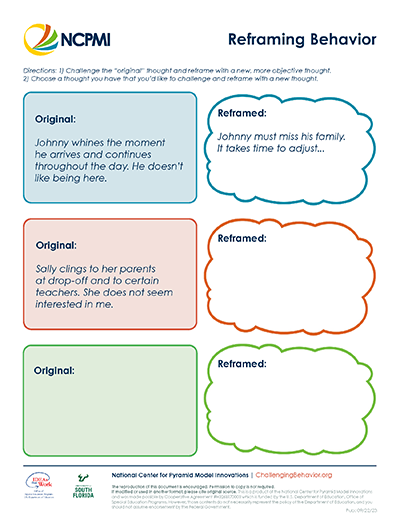
Use this form to reframe a behavior that challenges us into a more objective thought.
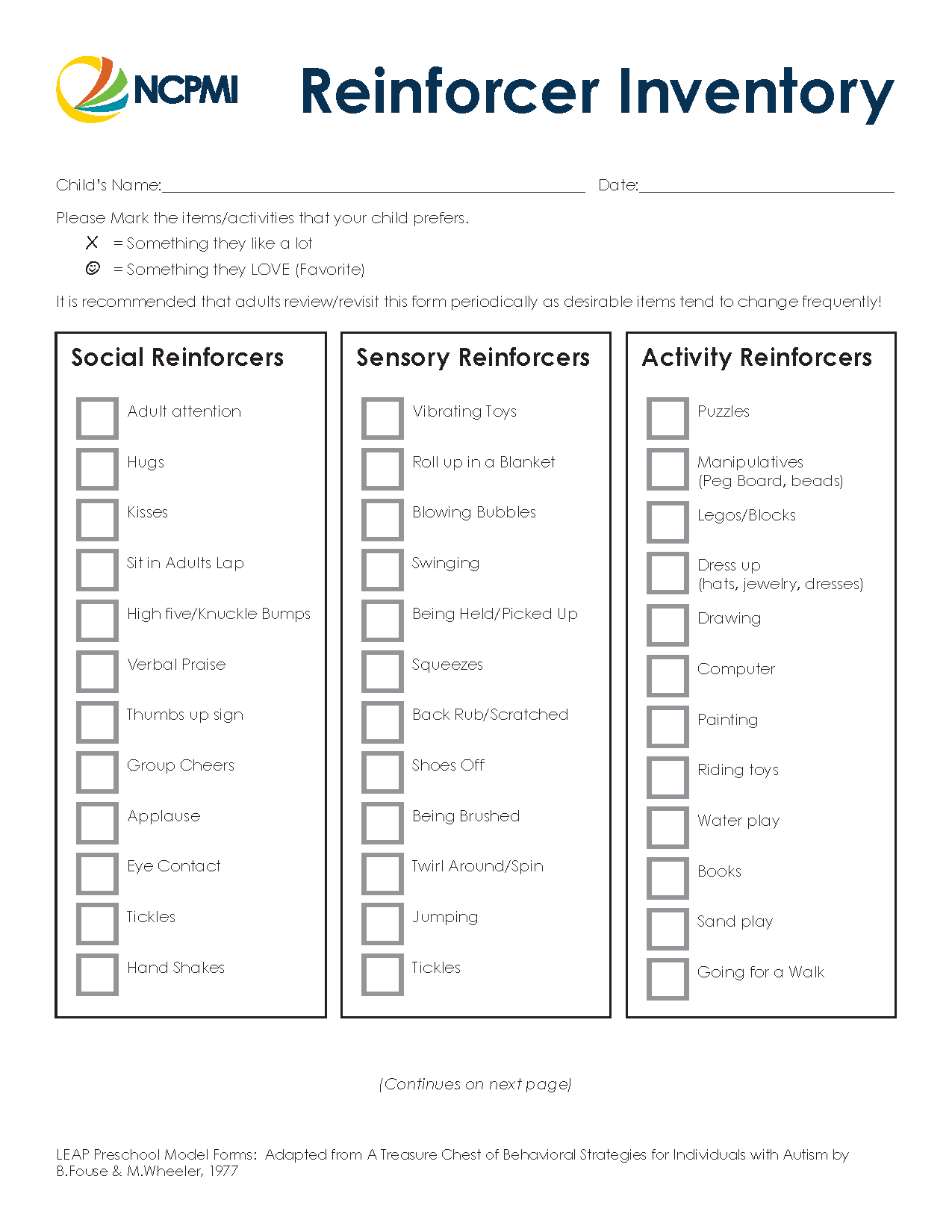
Use this reinforcer inventory to gather information about a child’s interests and preferred activities as well as his or her dislikes.
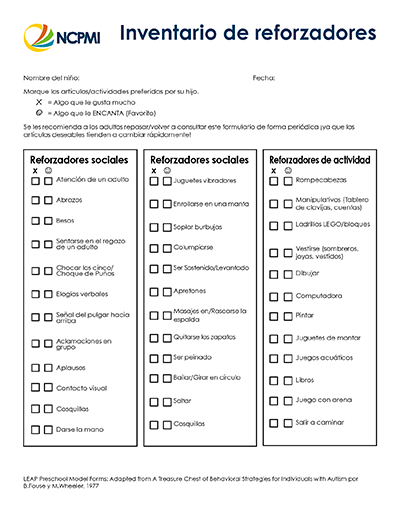
Use this reinforcer inventory to gather information about a child’s interests and preferred activities as well as his or her dislikes.

Used to identify a routine where the child is most likely to have challenging behavior.
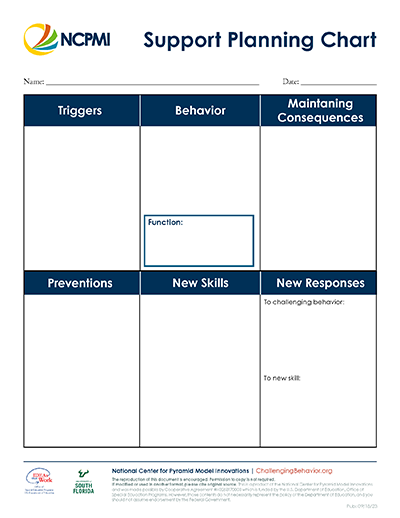
This template can be used to visually display the proposed elements of the behavior support plan and their alignment to the function of the child’s behavior.
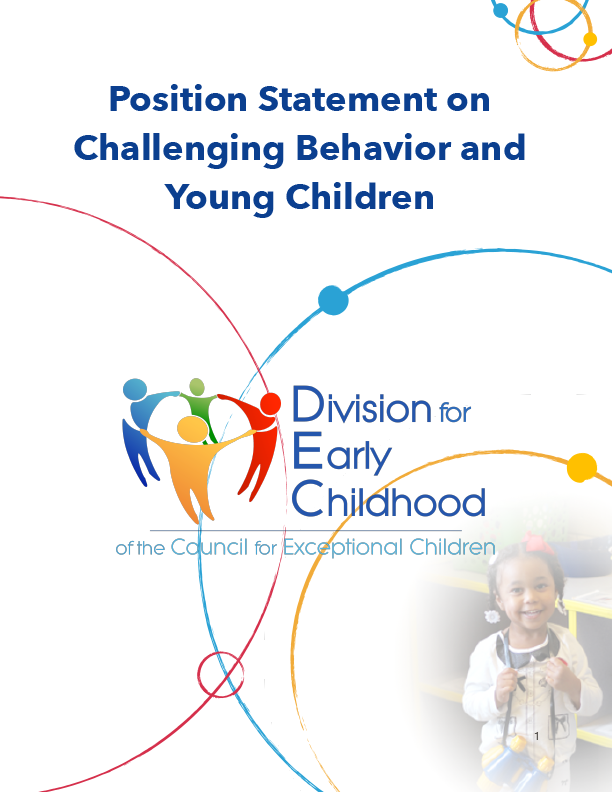
DEC position statement on addressing challenging behavior
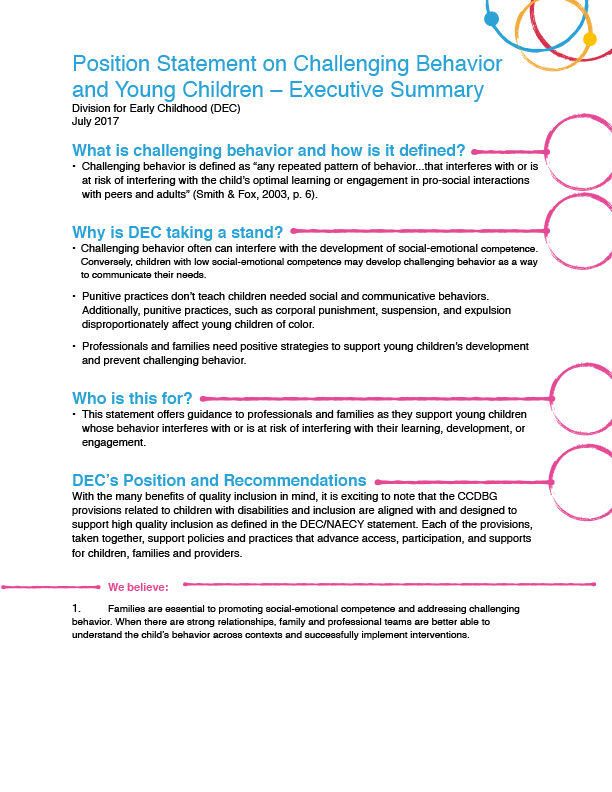
Executive summary of the DEC position statement on addressing challenging behavior
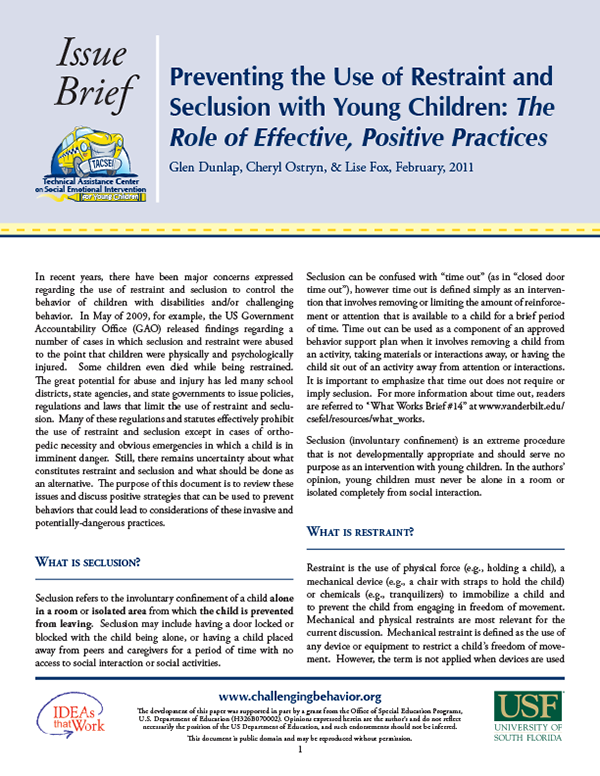
In recent years, there have been major concerns expressed regarding the use of restraint and seclusion to control the behavior of children with disabilities and/or challenging behavior. In May of 2009, for example, the US Government Accountability Office (GAO) released findings regarding a number of cases in which seclusion and restraint were abused to the point that children were physically and psychologically injured. Some children even died while being restrained. The great potential for abuse and injury has led many school districts, state agencies, and state governments to issue policies, regulations and laws that limit the use of restraint and seclusion. Many of these regulations and statutes effectively prohibit the use of restraint and seclusion except in cases of orthopedic necessity and obvious emergencies in which a child is in imminent danger. Still, there remains uncertainty about what constitutes restraint and seclusion and what should be done as an alternative. The purpose of this document is to review these issues and discuss positive strategies that can be used to prevent behaviors that could lead to considerations of these invasive and potentially-dangerous practices. (February, 2011).
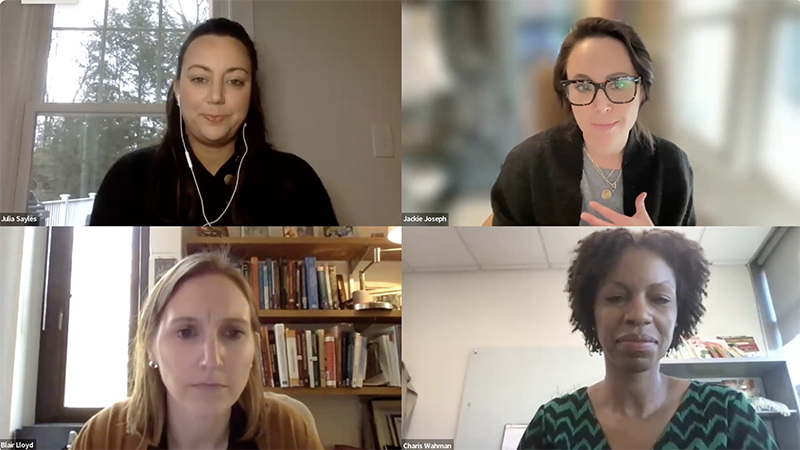
Join us for another conversation dedicated to implementing the individualized intensive intervention process while honoring the unique experiences of children who have experienced trauma. We will build on the March 2023 webinar to discuss the approaches teams might use as they engage in functional behavior assessment, plan development, and plan implementation to support a child who has experienced trauma.
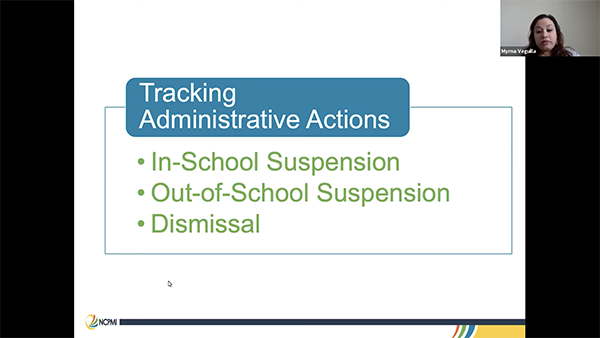
The Behavior Incident Report System (BIRS) provides early care and education programs with a system to collect and analyze behavior incidents across the program. The system provides an efficient mechanism for gathering information on key elements related to behavior incidents that can be used to make decisions about providing supports to teachers and children. In this webinar we will help participants understand what they need to do to get started using the BIRS in their program.

The Behavior Incident Report System (BIRS) provides early care and education programs and classrooms with a system to collect and analyze behavior incidents in their program. The system provides an efficient mechanism for gathering information on elements related to behavior incidents that can be used to make decisions about providing supports to teachers and children within the program. In this webinar, participants learn about the Behavior Incident Report system and get a tab-by-tab review of the Excel spreadsheet and the types of analyses it offers.

Coaching teachers to use universal Pyramid Model practices can have a positive impact on both teachers? and young children’s daily experiences in early childhood classrooms. What if there are children in the classroom who need a little more help to follow routines, understand expectations, regulate their emotions, or connect to their peers? Join our panelists as they discuss their experiences and processes for working with teachers to individualize Pyramid Model practices in their classrooms.
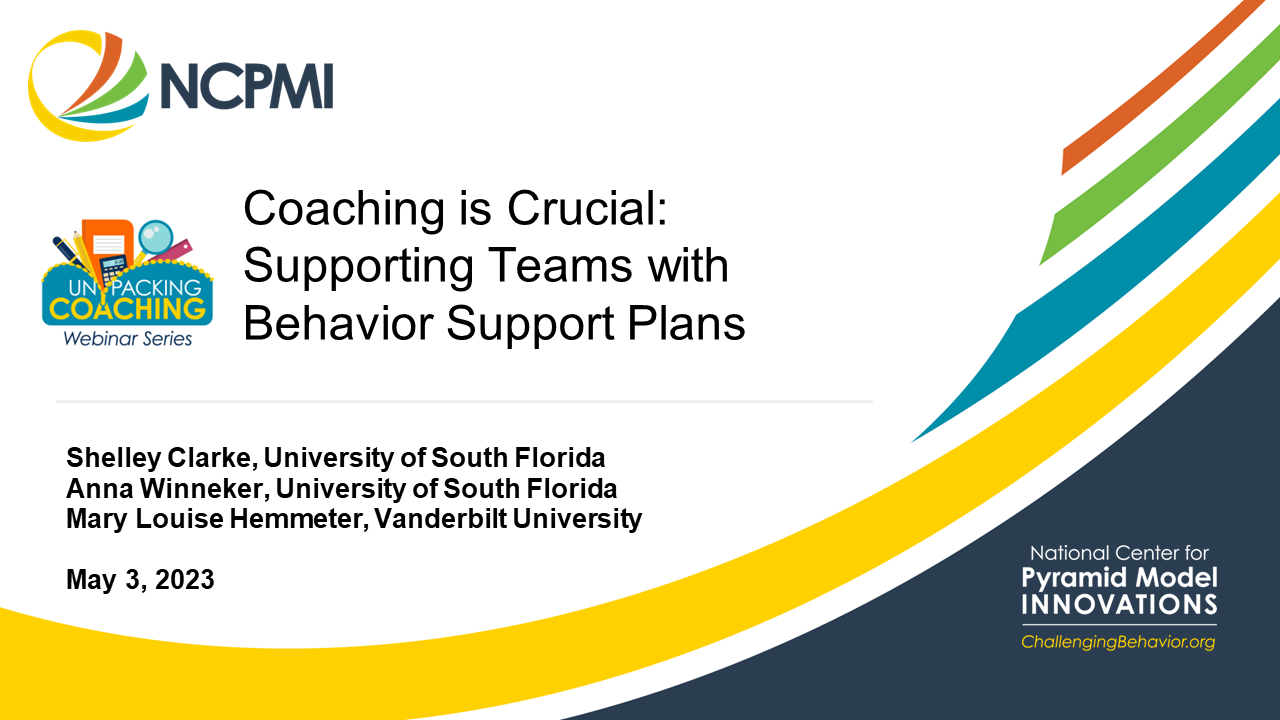
This webinar will focus on how to support teams to effectively implement an individualized behavior support plan. Hear from coaches, teachers, and families about their experiences with the Tier 3 process. Strategies and ideas will be shared.
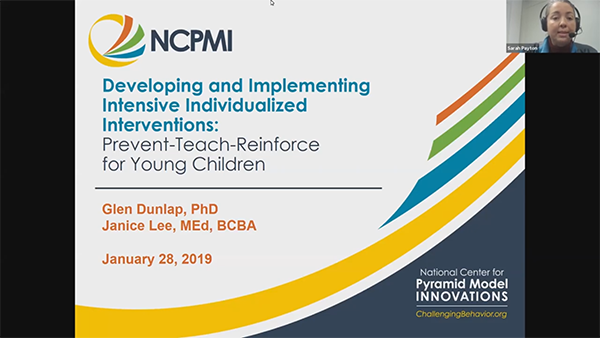
This webinar provides an introduction to Prevent-Teach-Reinforce for Young Children (PTR-YC). PTR-YC is an evidence-based model that classroom teams can use to resolve patterns of serious challenging behavior. PTR-YC is a user-friendly model of positive behavior support that is intended to help young children whose challenging behaviors are compromising their social, emotional and intellectual development. The webinar offers a description of the background and procedures of PTR-YC along with a case study to illustrate the PTR-YC process.

In November 2024, the US Department of Education released guidance titled, “Using Functional Behavioral Assessments to Create Supportive Learning Environments.” In this video, we’ll hear from some voices from the field about how FBAs impact their teaching practices.
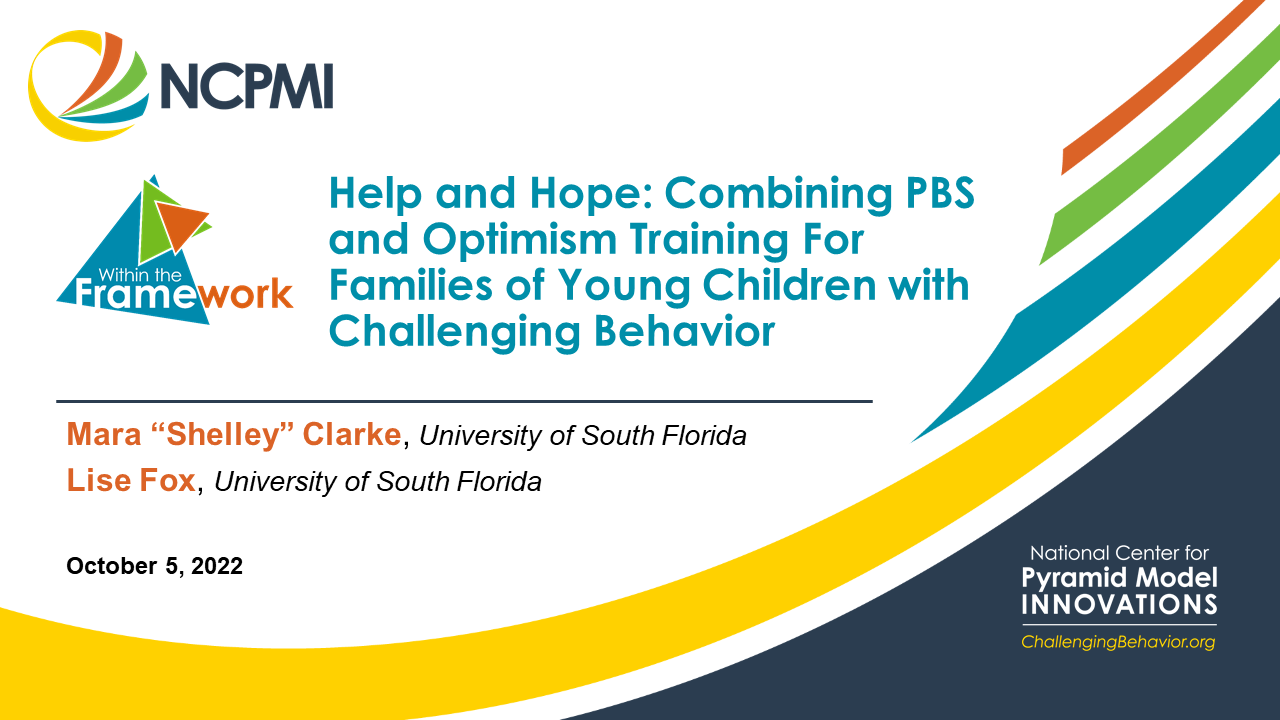
Have you encountered families who feel that there is no hope to change their child’s behavior?
The reduction in negative thinking and interpretation of events by parents has been documented as influencing parent behavior change, including enhanced implementation fidelity of behavior support strategies, resulting in improved child and family outcomes. Learn about the Positive Family Intervention research project and the cognitive behavior skill training procedures, also known as optimism training, that were utilized to teach parents how to identify situations prompting negative self-talk, specific beliefs that create barriers to intervention, the consequences of these beliefs, and the practice of using disputation and substitution. An application of optimism training will be shared that demonstrates how the reduction of parent pessimism helped to promote parent confidence, improved parent and child efficacy, and influenced the successful delivery and fidelity of PBS interventions for their child at home. Future considerations of adapting optimism training for use within collaborative teams to foster increased teacher confidence, persistence, and implementation fidelity of behavior supports for young children in school settings will also be proposed for discussion.
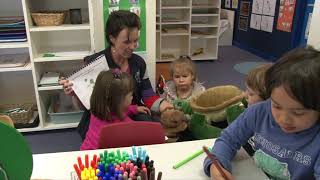
Child is coloring a picture of a turtle and the teacher takes the opportunity to teach an impromptu lesson on Tucker the Turtle.
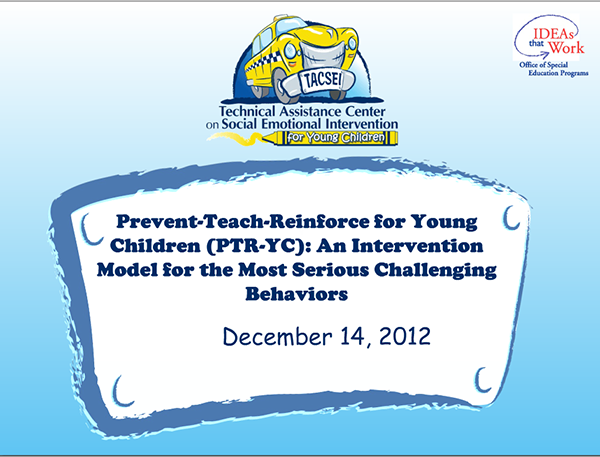
This webinar provides a description of Prevent-Teach-Reinforce for Young Children, a model of intervention for young children with the most persistent and severe challenging behaviors.?The model is based on the well-established procedures of positive behavior support, but is designed to help providers implement the assessment and intervention strategies with a high level of fidelity, leading to improved effectiveness. PTR-YC is a process for use in early childhood care and education settings, including pre-K classrooms, and consists of teaming and goal setting, practical data collection, functional behavioral assessment, intervention planning and implementation.?All steps are designed for use by typical early childhood providers.
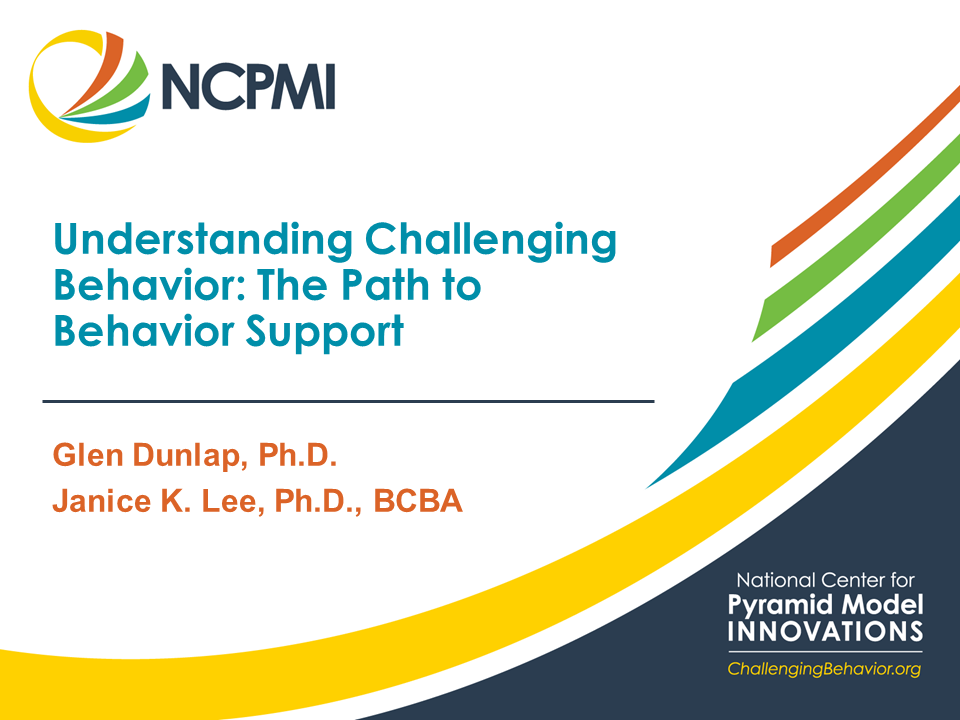
When young children exhibit persistent challenging behavior, there are impacts to daily routines and activities that affect the quality of life for the child as well as the child’s family, teachers, classmates and other peers. This webinar will provide an introduction to how we can understand a child’s challenging behavior in regards to its form and function. Discussion and examples will be used to explain the importance of gathering functional data/information to establish a sensible and effective path to behavior support.
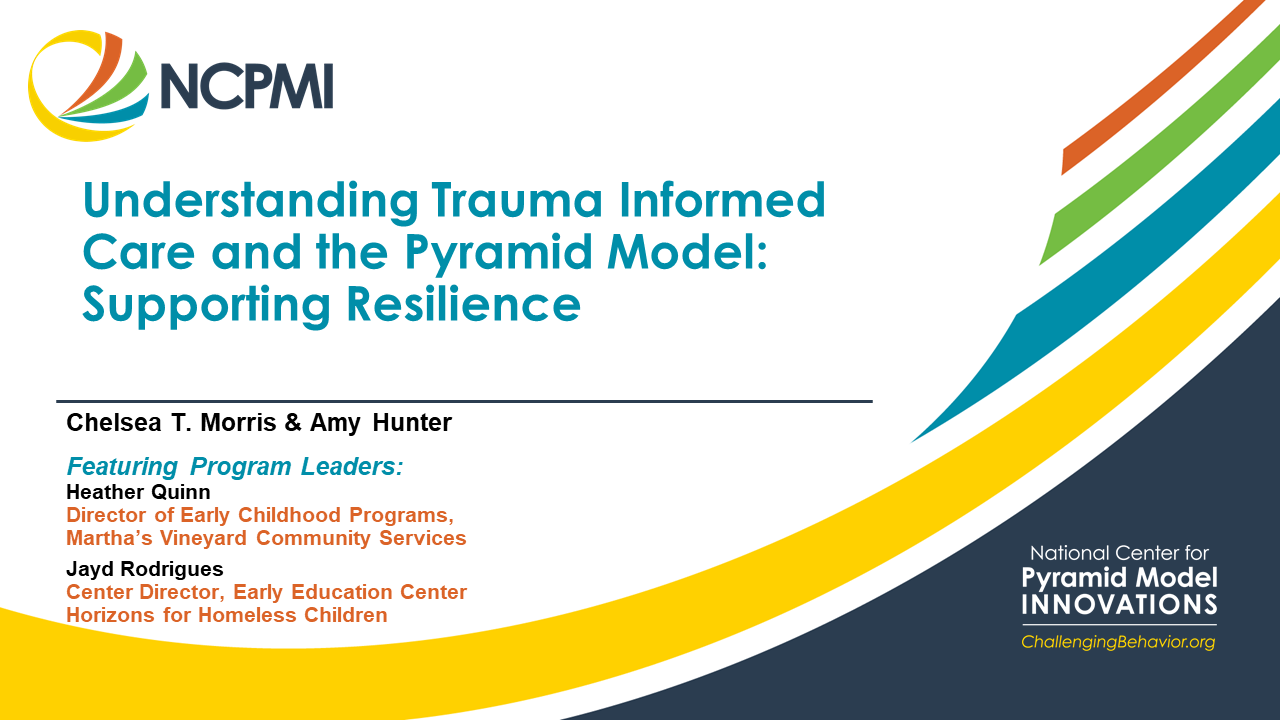
Childhood trauma may be more common than you think. Roughly 26 percent of children in the United States witness or experience a trauma before the age of 4 (Briggs-Gowan et al. 2010). It is highly likely that there are children who have experienced trauma in every early childhood classroom. Often early educators are not aware of what children have experienced in their early lives. Join this webinar to hear more about trauma informed care, the Pyramid Model and how these approaches support resilience for all children including those who have experienced trauma. This webinar will highlight how two early childhood programs use the Pyramid and trauma informed care to support children in their care. This webinar will also share resources you can use in your own programs.

The Behavior Incident Report System (BIRS) Excel spreadsheet has the capacity to alert early childhood programs of possible disproportionality for various groups of children and a particular factor or outcome (i.e., behavior incident frequency, suspension, expulsion). This webinar will discuss the BIRS Excel spreadsheet’s built-in equity alerts, what the measures of disproportionality mean, and how a leadership team will review them. We will also present resources programs can use in their work towards equity.
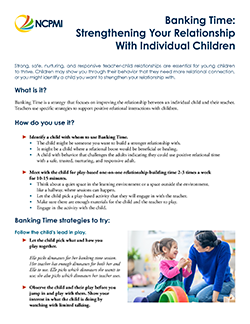
Banking Time is a strategy that focuses on improving the relationship between an individual child and their teacher. Learn the strategies to implement the intervention and use the reflective companion to support your implementation.
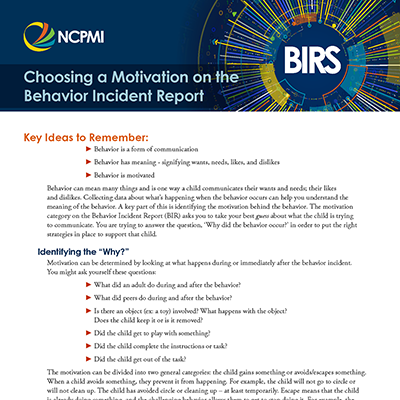
This tip sheet explains the “motivation” category on the BIR. It includes a table of examples and tips for teachers to complete that section of the form when they’re unsure of the motivation.

Guidance on how adults can use neutralizing routines to stay calm when guiding a child whose behavior is challenging.

Empowering families to be active and valued participants in the Individualized Positive Behavior Support Plan (IPBS) is foundational to Pyramid Model implementation. This set of tips and strategies helps families ensure their values, assets, perspectives, and preferences are included in individualized support for their children.
Last Updated: 10/01/2024 ADA updates
Created: 01/11/2024
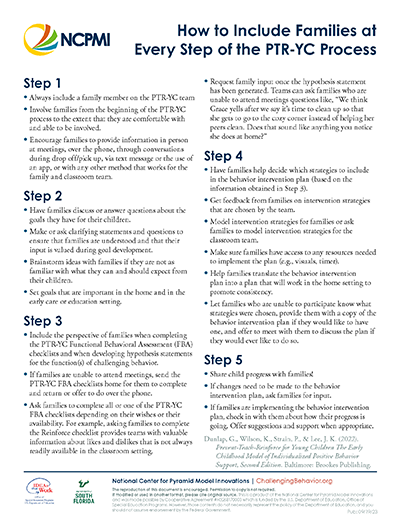
This handout includes important considerations for including families at every step of the PTR-YC process.
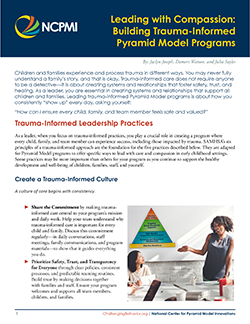
Leadership practices for creating systems and relationships that support staff, families, and children.
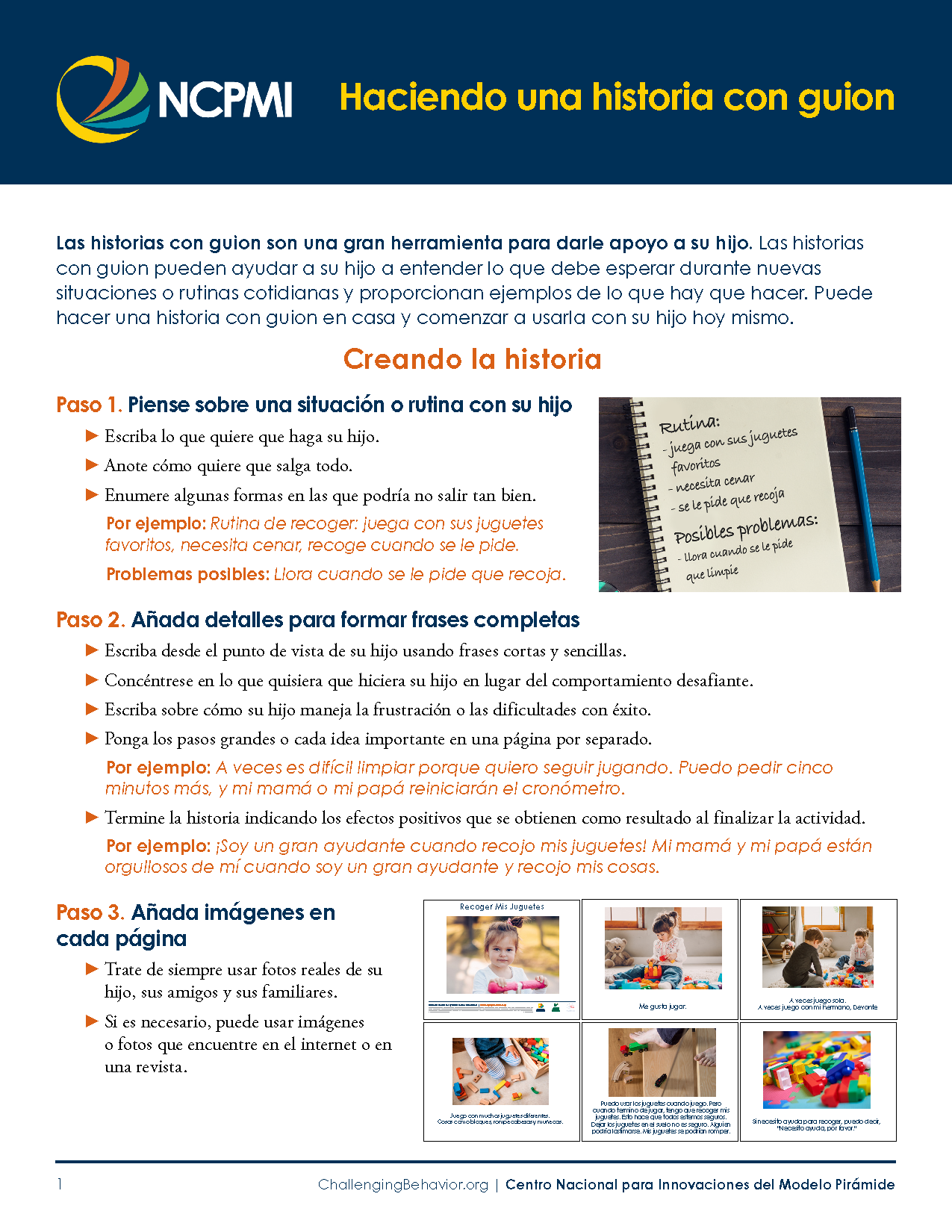
This tipsheet contains suggestions on how to develop and use scripted stories at home.
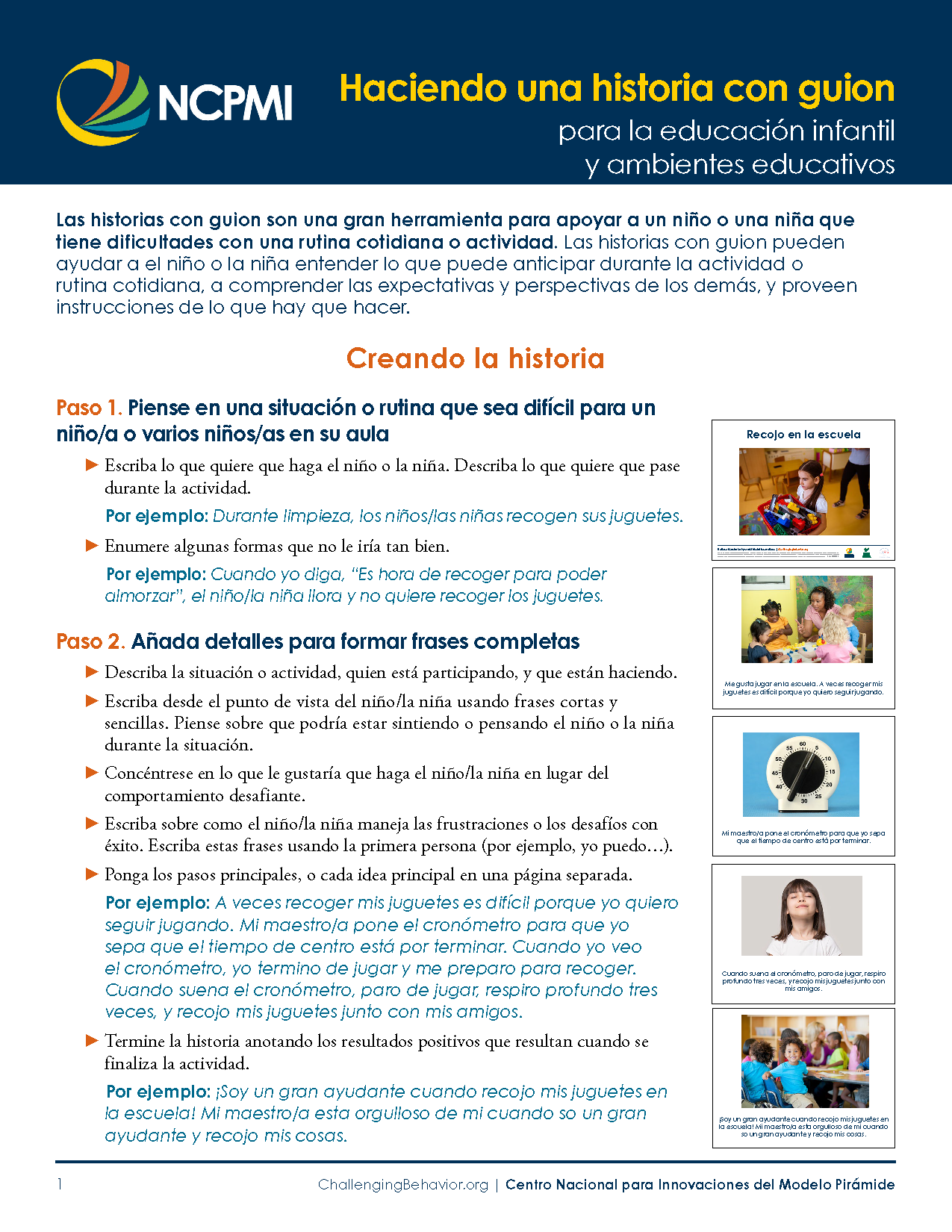
This tipsheet contains suggestions on how to develop and use scripted stories.

Positive Solutions for Families is an evidence-based, family-friendly workshop of seven sessions to help professionals working with families of children ages 2-5 years. Zip folder provides all materials needed by a facilitator to provide the workshop series to participants.

Positive Solutions for Families is an evidence-based, family-friendly workshop of seven sessions to help professionals working with families of children ages 2-5 years. Zip folder provides all materials needed by a facilitator to provide the workshop series to participants.
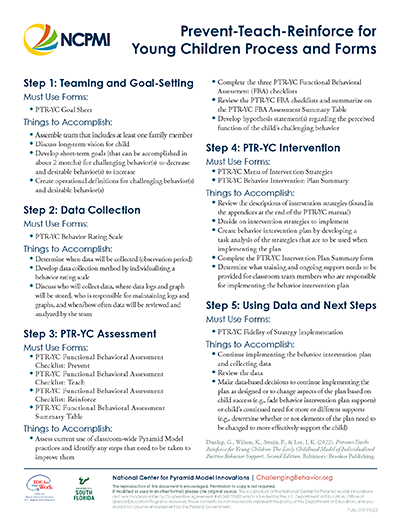
This handout contains the forms and things to accomplish within each step of the PTR-YC process.
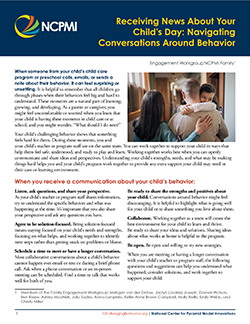
This family handout provides guidance to families on how to navigate conversations when receiving news about their child’s behavior. Families can use this resource to get ideas and tips for collaborating with their child’s program and teachers, including specific questions to ask and prompts getting collaborative conversations started.
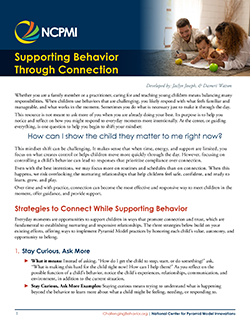
Supporting Behavior Through Connection is a practical resource for families and early childhood practitioners that shifts the focus from compliance to connection. It offers simple, relationship-centered strategies to respond to challenging behavior in ways that help children feel safe, valued, and supported. The resource describes three practices, including examples and prompts, that can be used in everyday routines to build trust and connection with children.
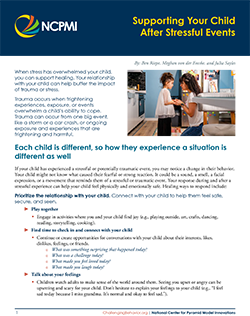
This resource offers guidance on supporting children after stressful events and includes strategies for families and caregivers to create safety and predictability through routines, clear communication, and emotional connection.
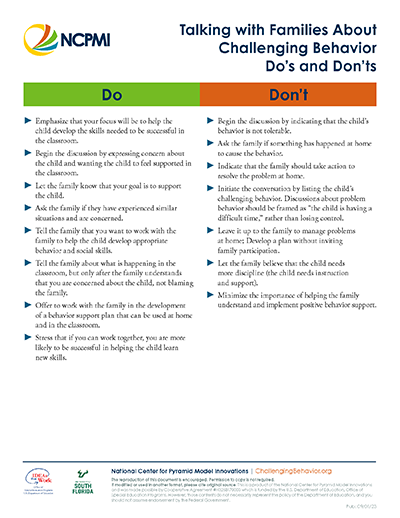
Dos and Don?ts for talking with families about their child’s problem behavior. This is a one-page handout.
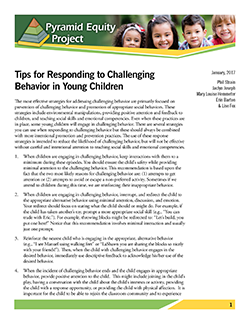
Tips for how to respond to challenging behavior when it occurs in the classroom.

This document was designed for programs to use with families when the use of PTR-YC is being considered for a particular child. It outlines the PTR-YC process in family-friendly language and provides information regarding where the PTR-YC process fits within the Pyramid Model. It also discusses why a family’s child might benefit from individualized social emotional supports and how the family plays an important role as a member of the PTR-YC team.
